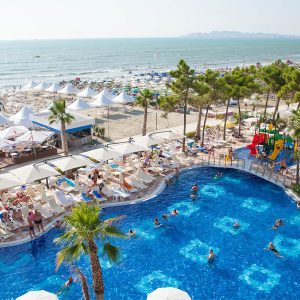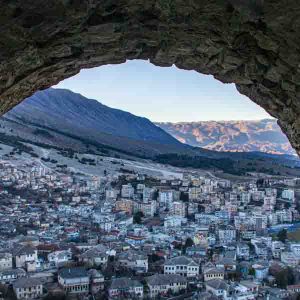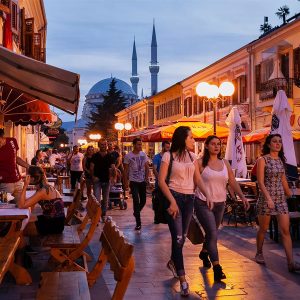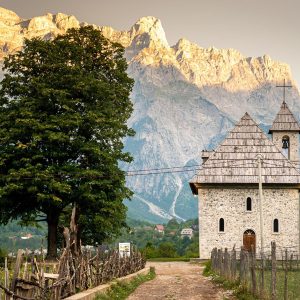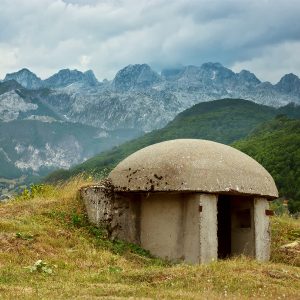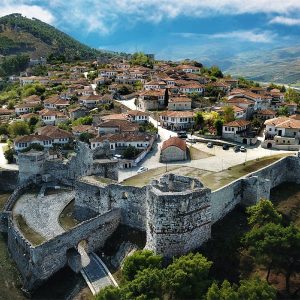The Fascinating History of Albania: A Journey Through Time
Albania may be a small country in the heart of the Balkans, but its history is as rich and complex as any in Europe. From ancient civilizations to modern-day independence, the country’s past is full of remarkable stories that have shaped its culture, identity, and resilience. For history buffs and curious travelers alike, Albania offers a journey through time that is as captivating as it is diverse. In this blog, we’ll take you through the key historical periods of Albania, from its ancient roots to its more recent communist era and eventual liberation.
Ancient Albania: Illyrians, Greeks, and Romans
Albania’s history stretches back thousands of years. The earliest known inhabitants were the Illyrians, an ancient tribe that populated much of the Western Balkans. The Illyrians are often considered the ancestors of the modern Albanian people, and their presence can still be felt today in Albanian culture and language.
By the 4th century BC, Greek colonists began to establish settlements along Albania’s coastline, especially in places like Butrint and Apollonia. These colonies became important centers of trade, art, and learning in the region. But it wasn’t long before Albania became part of a much larger empire.
During the Roman era, Albania (then known as Illyricum) played a significant role in the expansion of the Roman Empire. The famous Via Egnatia, an ancient Roman road, connected Dyrrachium (modern-day Durrës) to Byzantium (later Constantinople), turning Albania into a crucial trade route between the East and the West. Roman ruins, including amphitheaters and fortresses, can still be visited today in Durrës and other locations.
Medieval Albania: Byzantines and the Rise of Skanderbeg
Following the collapse of the Roman Empire, Albania found itself caught between the competing interests of the Byzantine Empire and various Slavic and Norman invasions. Throughout the Middle Ages, Albania’s coastal towns continued to thrive, with the Byzantine Empire having a strong influence on the region’s religion and culture.
However, the medieval period also saw the rise of Albania’s most famous national hero, Gjergj Kastrioti Skanderbeg. In the 15th century, Albania faced an existential threat from the expanding Ottoman Empire. Skanderbeg, a former Ottoman military leader of Albanian origin, returned to his homeland, led a rebellion, and united various Albanian tribes against Ottoman rule. For 25 years, Skanderbeg successfully defended Albania from Ottoman invasion, earning his place as a symbol of national pride and independence.
Although Albania eventually fell under Ottoman rule after Skanderbeg’s death in 1468, his legacy continued to inspire the Albanian people during later struggles for independence.
Ottoman Rule and the Long Path to Independence
Albania spent nearly five centuries under Ottoman domination, from the late 15th century until the early 20th century. The Ottomans imposed their administration, laws, and religion on the region, with Islam becoming the dominant faith in the country. However, Albania maintained its unique identity and culture throughout this period.
The 19th century saw the rise of Albanian nationalism, fueled by a desire to preserve the Albanian language and culture in the face of Ottoman efforts to suppress it. This movement culminated in the League of Prizren in 1878, where Albanian leaders gathered to push for greater autonomy and the protection of Albanian territories.
Finally, in 1912, Albania declared its independence from the Ottoman Empire. The declaration took place in Vlorë, and the country was officially recognized by international powers at the Conference of London in 1913. However, Albania’s newfound independence was short-lived as the region became a battleground during the Balkan Wars and World War I.
Albania in the 20th Century: From Monarchy to Communism
After a brief period as a monarchy under King Zog I, Albania faced a turbulent 20th century. During World War II, Albania was occupied by Italian and then German forces, and it wasn’t until 1944 that the country was liberated by communist resistance fighters led by Enver Hoxha.
Hoxha’s communist regime had a profound and lasting impact on Albania. His government isolated Albania from the rest of the world, breaking ties with both the Soviet Union and China. Hoxha declared Albania the world’s first atheist state and erected hundreds of thousands of bunkers across the country to guard against perceived threats. The regime was marked by oppression, with severe restrictions on personal freedoms and human rights.
However, the fall of communism in 1991 opened a new chapter for Albania. The country embraced democracy and began to transition to a free-market economy, though the early years were fraught with political instability and economic challenges.
Modern Albania: A Bright Future Ahead
Today, Albania is a thriving, independent nation that has left behind the shadow of its communist past. It is a member of NATO and a candidate for European Union membership. Albania’s cities, including its capital, Tirana, are modernizing rapidly, and its tourism sector is booming, as more and more people discover the beauty and history of this fascinating country.
Despite its tumultuous past, Albania has always been a land of resilience and adaptability. The Albanian people take pride in their history, and visitors can explore this history through the country’s countless landmarks, from ancient Roman ruins to Skanderbeg’s castle, to the remnants of Enver Hoxha’s bunkers.
Discover Albania’s History with Us
At Experience Albania, we are passionate about sharing the rich history and cultural heritage of Albania with travelers. From UNESCO World Heritage sites like Butrint and Gjirokastër, to guided tours through Ottoman-era cities and hidden historical gems, we offer a range of tours that take you deep into the heart of Albania’s past. Whether you’re a history enthusiast or simply curious about this beautiful country, our bespoke tours will help you discover the true essence of Albania


